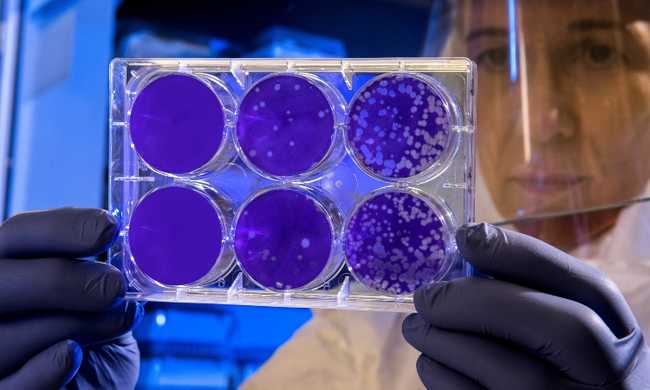Benefits of whole orange and orange juice
Consuming orange in full format provides more benefits than consuming orange juice

Resized image of Brienne Hong, is available on Unsplash
Orange is one of the most popular fruits in the world. It belongs to the citrus fruit group, but its origin is a mystery. It is believed that the first oranges were cultivated in East Asia thousands of years ago. Orange is a natural source of fiber, vitamin C, thiamine, folate and antioxidants. These components provide a number of health benefits such as preventing obesity, anemia, kidney stones, improving the digestive system and heart health. Check out:
Nutritional information
A raw orange (about 100 grams) contains:
| Nutrient | Value |
|---|---|
| calories | 47 kcal |
| Water | 87 % |
| Protein | 0.9 g |
| Carbohydrates | 11.8 g |
| Sugar | 9.4 g |
| Fiber | 2.4 g |
| Fat | 0.1 g |
| G. saturated | 0.02 g |
| G. monounsaturated | 0.02 g |
| G. polyunsaturated | 0.03g |
| Omega 3 | 0.01 g |
| Omega 6 | 0.02 g |
| Trans fat | 0 g |
sugars
Oranges are mainly made up of sugars and water, and contain very low amounts of protein, fat and calories.
Simple sugars such as glucose, fructose and sucrose are the predominant carbohydrates in oranges. They are responsible for the sweet taste of the fruit.
Despite its sugar content, oranges have a low glycemic index, ranging from 31 to 51 (see study about it here: 1). This means that blood sugar levels don't go up quickly after you eat it. Consuming foods with a low glycemic index is associated with health benefits, such as preventing diabetes, obesity and coronary heart disease in diabetics (see study about it: 2).
Fibers
Orange is a great source of fiber. Each 184 grams of fruit (a large orange) contains 33.12 grams (18%) of fibers composed of pectin, cellulose, hemicellulose and lignin. These fibers improve the functioning of the digestive system, promote weight loss, lower cholesterol levels and feed beneficial bacteria in the intestine, acting as a prebiotic (see studies on this: 2, 3, 4, 5).
- What are prebiotic foods?
Vitamins and minerals
- Vitamin C: oranges are an excellent source of vitamin C. A large orange can provide more than 100% of the recommended daily allowance of vitamin C (see study about it here: 6);
- Thiamine: is one of the B-complex vitamins, also called vitamin B1;
- Folate: Also known as vitamin B9 or folic acid, folate has many essential functions and is found in many plant foods;
- Potassium: Orange is a good source of potassium. High potassium intake can lower blood pressure in people with hypertension and has beneficial effects on cardiovascular health (see study about it here: 7).
Antioxidants
Orange is an excellent source of antioxidant compounds, especially flavonoids and carotenols, such as hesperdin, anthocyanin, beta-cryptoxanthin and lycopene, compounds that have antioxidant action (see studies about it: 8, 9, 10 and 11).
Citric acid
Oranges and other fruits in the citrus group contain citric acid, a substance that helps prevent the formation of kidney stones (see studies on this: 12, 13).
heart health
The flavonoids present in orange, especially hesperidin, can have protective effects against heart disease (see studies about it here: 14, 15).
Clinical studies in humans have found that daily intake of orange juice for four weeks helps to thin the blood and can significantly lower blood pressure (see studies on this: 16, 18).
Orange fibers also contribute to heart health, as they help control cholesterol levels (see study about it here: 19).
Prevention of anemia
Anemia is characterized by a decrease in the amount of red blood cells or hemoglobin in the blood and is often caused by iron deficiency.
- Iron deficiency anemia: what it is and what are its symptoms
- What are iron rich foods?
Although oranges are not a good source of iron, they are a source of organic acids, such as vitamin C (ascorbic acid) and citric acid, which increase the absorption of iron in the blood and therefore help to prevent anemia (see here studies about it: 20, 21).
whole orange and orange juice
Orange juice is a very popular drink all over the world. One of the main differences between orange juice and whole oranges is that the juice is much lower in fiber (see study about it here: 22).
This decrease in the amount of fiber can increase the glycemic index, which is not a good idea for diabetics (see study about it here: 23).
The consumption of fruit juice in excess can contribute to weight gain and have harmful effects on metabolic health (see studies about it here: 24, 25, 26). Therefore, opting for the fruit in its full format (removing only the skin) is the best way to consume oranges.
Adverse effects
Orange does not have many known adverse effects on healthy people. Some people may have allergies, but this is rare.
Heartburn sufferers may experience worsening of symptoms after consuming oranges, due to the presence of organic acids such as citric acid and ascorbic acid (vitamin C).
Adapted from Healthline










